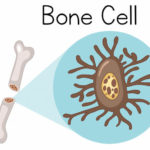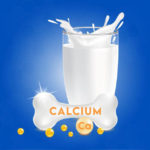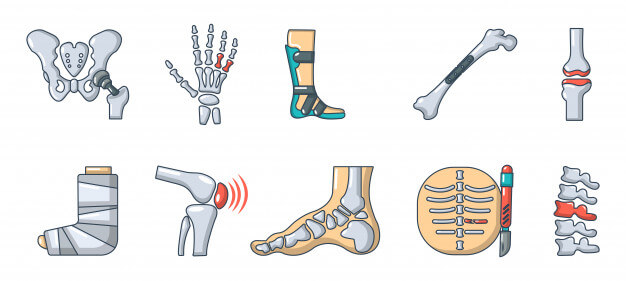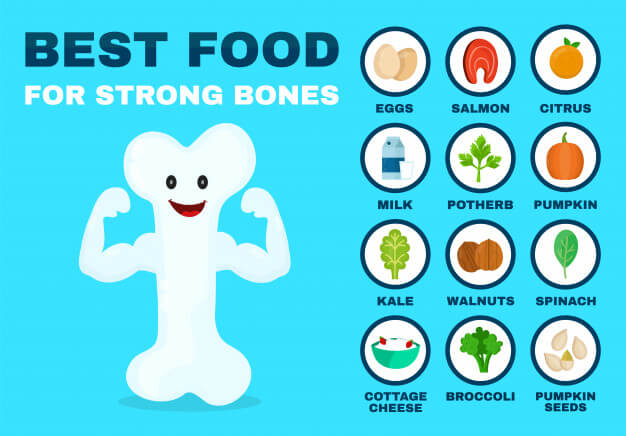Vitamin D is essential. The benefits go way beyond strong bones, as this powerhouse supplement can support many aspects of overall health. Metagenics Vitamin D drops, a bio-available form of vitamin D with higher potency than standard tablets and capsules, improves the body’s ability to absorb calcium through the entire digestive system and may reduce the risk of bone disorders, including osteoporosis.
Vitamin D3 is an important immune system vitamin and is believed to improve mood, especially during the respective winter months, protect the brain from toxicity, and increase neuromuscular function. Supplementing with Vitamin D3 has been shown to improve mood’ protect the brain from toxicity and increase neuromuscular function.
Vitamin D Deficiency – What You Should Know
Vitamin D deficiency has been studied intensively over the last few years to treat several serious diseases. Vitamin D deficiency can be a major problem, because without its calcium, which is important for healthy bones, cannot be absorbed. The question is, how do we naturally absorb vitamin D and keep it from becoming deficiency-related?
Vitamin D is one of the vitamin groups present in the human body, but it isn’t the only one. Although vitamin D is important for good health, it isn’t technically a vitamin per se. True, it is vital for overall health, and only very small amounts are needed for maintaining health. It is the absorption of vitamin D and its lack of absorption that have led to such health problems as osteoporosis and certain types of cancer.
So how can vitamin D be absorbed, and is it needed for healthy bones and teeth? Vitamin D occurs in two forms, in its “active” or natural form and its inactive (proximal) form. The inactive form is required by the body, while the active form is released through sun exposure.
Getting Vitamin D Naturally
To obtain vitamin D in its natural state, and to avoid vitamin D deficiency, the best way to do so is using vitamin D supplements. There are two main types of vitamin D supplements on the market today – natural sources of the vitamin, as well as synthetic forms that are designed to mimic the effects of natural vitamin D. Unfortunately, synthetic forms don’t always produce the same results as their natural counterparts. So, what can you do to ensure that your vitamin supplement is absorbed effectively and that it works at maximum capacity? The answer largely depends on where you get your vitamin D products from.
While the recommended daily vitamin D intake is 400 international units, many people don’t live within that limit due to vitamin D deficiency. One vitamin D deficiency risk factor is increased calcium absorption after vitamin D supplementation. Another potential source of vitamin D deficiency is sunlight exposure, which explains why most pregnant women need to take vitamin D supplements. Pregnant women may also be at higher risk of vitamin D deficiency because their skin doesn’t produce vitamin D when exposed to sunlight. Deficiency is also possible due to genetic factors, so it’s important to talk to your doctor about your vitamin D consumption.
In recent years, researchers have been examining the benefits of doses of vitamin D and have been looking at the role it plays in maintaining health. Vitamin D levels have been shown to play a role in certain types of cancers, as well as in obesity and other non-obese health issues. Vitamin D deficiency may also be tied to depression, as some studies have demonstrated a link between vitamin D and mood disorders. More studies are needed to examine the true health benefits of vitamin D. For now, people who wish to optimize the health benefits of vitamin D should get their daily recommended amount from a vitamin supplement or food fortified with vitamin D.
Key Signs and Symptoms of Vitamin D Toxicity
Vitamin D is an essential vitamin, which helps to regulate the metabolism of fats and other compounds. However, like many other key vitamins, too much vitamin D can be toxic, causing many symptoms. A major symptom is hypocalcemia or low levels of normal vitamin D in the blood.
The main symptom of vitamin D toxicity is an accumulation of calcium in the blood (hypocalcemia), which produces pain, weakness, nausea, and frequent urine production. Mild cases may require no treatment, but chronic deficiency can lead to serious bone disease and disorders of the kidney. People who live in climates where snow and ice are common are at higher risk for vitamin D toxicity. In cases where there is abnormally low calcium in the blood or during times when people are inactive, normal blood levels may still be low enough to cause toxicity.
Several symptoms can indicate vitamin d toxicity. Signs and symptoms of vitamin d toxicity include weakness, dizziness, nausea, vomiting, abdominal pain, irregular heartbeat, insomnia, vomiting, fatigue, muscle cramps, headaches, increased appetite, dark anemia, and abdominal swelling. These symptoms can occur in either acute or chronic deficiency, depending on the duration of time the person has been deficient. Some of these vitamin D symptoms, however, can also be caused by vitamin or drug therapies. Symptoms of vitamin d overdose can usually be detected through urine tests, blood tests, or both.
FAQs About Metagenics Vitamin D Drops
What is the Best Time to Take Vitamin D Drops?

Vitamin D is an important part of maintaining healthy bones and teeth, but it can only be received when you are in your teens or twenties. While it is true that an older person cannot suddenly begin to receive these benefits, they do need to start taking these supplements about one to two hours before they will need them. Of course, it will be much easier for your body to make the vitamin D it needs if you are in your thirties, rather than your forties or fifties. Therefore it is important to understand the best time to take these particular vitamin D supplements.
As is the case with so many things in life, the best times to take these products are not set in stone. It will often depend upon your own medical needs as well as your preferences as a person. For instance, adults who suffer from osteoporosis will usually want to avoid the supplements that are designed to be taken at bedtime. However, if you feel that you must take a vitamin D supplement, it may be a good idea to take it at any time during the day.
Another good example of when it is not recommended to take these vitamin supplements is after your body has been exposed to very strong sunlight. You should wait until your skin has recovered from sun exposure before you can consider a vitamin D supplement. Once you have healed from your sunburns, then you may wish to consider it as a valid time to take the extra vitamin. Just be sure that you choose a brand that has not been added to the shelves before your research.
How Can I Raise My Vitamin D Levels Quickly?

It is very important to increase the level of vitamin D in your body if you are not eating a healthy diet or you are not getting enough sunshine each day. In most cases, people that are exposed to sunlight throughout their lives and are young and in good health will be able to raise their vitamin D levels quickly with diet and regular vitamin D supplements. However, some are older, live in extreme climates, and still have poor diets that do not provide the proper amount of vitamin D in their bodies.
For those that cannot eat a healthy diet, but still need to raise the level of their vitamin D, they should first talk to their licensed doctor and see what they recommend for them. If you are in poor health, there are prescription strength and over-the-counter medications that can help to raise your levels quickly. There are also some topical creams on the market that can help to do the same thing. There are some other things that you can do to raise your vitamin D naturally that your doctor may recommend.
Those who know how to properly care for their bodies and the foods that they are eating can naturally raise their vitamin D levels in a very short period. You can follow some simple guidelines, and you don’t even have to be someone that has a lot of money to make it happen. You can easily get your body on the right track to correcting itself and increasing the levels of vitamin D in your body.
Does Vitamin D Make You Gain Weight?

Vitamin D has been hailed as the “fountain of youth” for years. The truth is, however, that without this nutrient your skin, bones, and other parts of your body may start to weaken. Those who do experience the positive side effects of vitamin D are children, women who may be pregnant, or those who suffer from certain diseases.
Many people who do not get enough vitamin D in their diet tend to snack throughout the day on the foods they are craving. This in turn makes them consume more calories and leads to an increase in body fat. It is also possible that those who have diets low in fat may benefit from the vitamin, as it can help lower cholesterol levels and lower the number of fat cells in the blood. However, it is not clear how vitamin D works in these scenarios, and more research is needed to determine if the vitamin helps people control their appetites.
If you have any concerns about your health and weight, you should consult your doctor. Your doctor can test your blood and check for vitamin D levels. Also, a vitamin D deficiency may be evident by the symptoms you are experiencing. In many cases, your healthcare professional may suggest that you take a vitamin D supplement. If you have any questions about whether vitamin D makes you gain weight, talk to your healthcare professional first.
Building up immunity: Dr. John La Puma offers up key tips on how to build up immunity to the coronavirus – Santa Barbara News-Press
Source: (newspress.com)
Beyond Resveratrol: The Anti-Aging NAD Fad
Source: (blogs.scientificamerican.com)
Other Ingredients: Medium-chain triglycerides, peppermint oil, spearmint oil, rosemary (antioxidant), and ascorbic acid (antioxidant).
Directions: Adults take one drop up to five times daily, and for children age four and above give one drop daily, or as recommended by your healthcare practitioner.
This product is non-GMO and gluten-free.
Cautions: If pregnant or nursing, taking other nutritional supplements or taking medication, consult your healthcare practitioner before use. Do not exceed the recommended dosage unless directed to do so by your healthcare practitioner. Keep out of the reach of children.
Notice: It is highly recommended that serum 25(OH)- and 1,25(OH)2-vitamin D be monitored every 60-90 days while consuming this product to ensure that levels remain in an acceptable range.
This product is manufactured in a facility that produces products containing soy, tree nuts, and crustacean shellfish.



